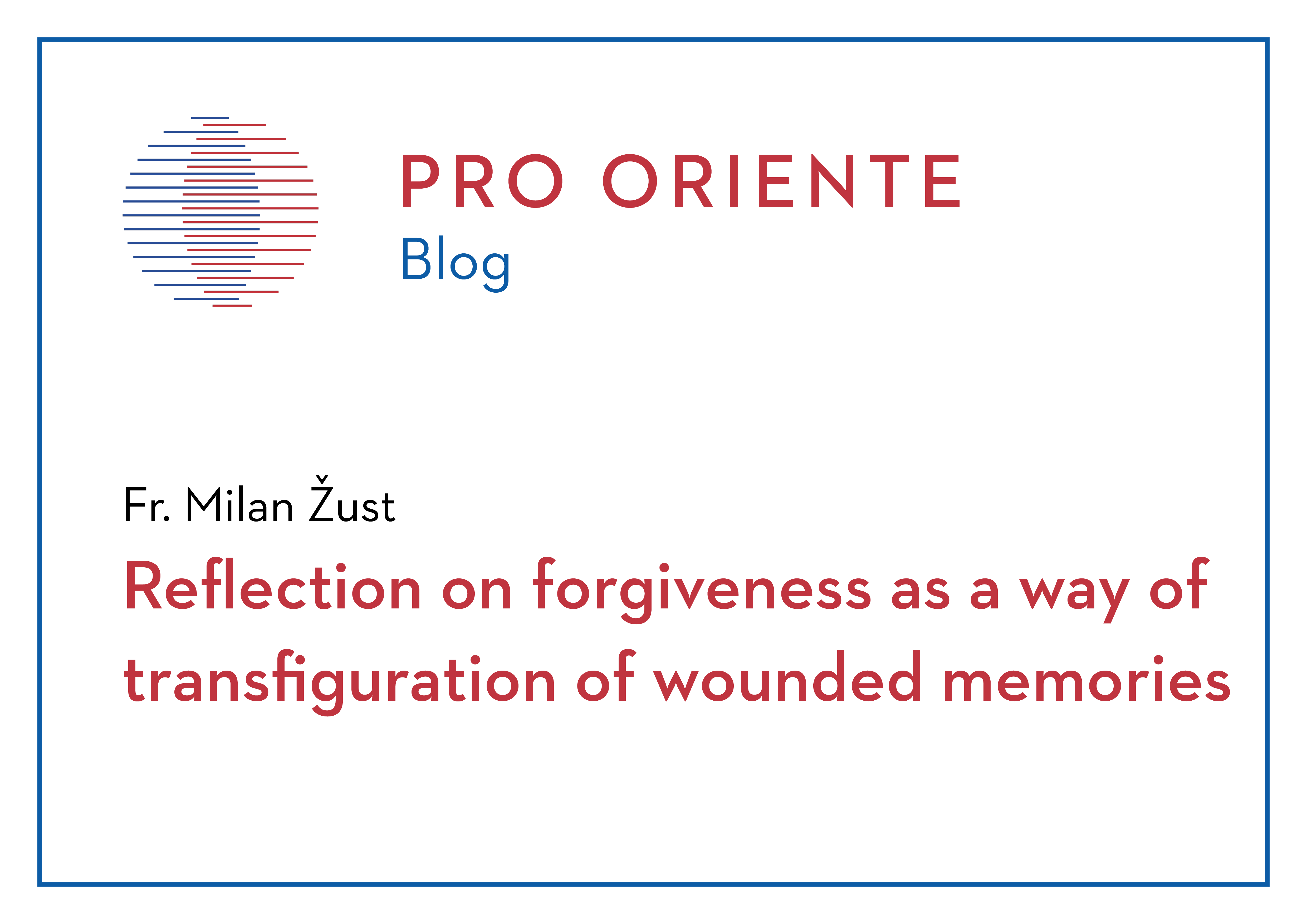Reflection on forgiveness as a way of transfiguration of wounded memories
02. September 2024
Thema: Healing of Wounded Memories

In the Catholic Church there have been various reflections on the healing of wounded memories, and various gestures, particularly around the Jubilee Year 2000. That very year, the International Theological Commission produced the document Memory and Reconciliation: The Church and the Faults of the Past, which deals with the purification of memory in various contexts, including between Christian communities. Among other aspects, the documents states that forgiveness granted to others and the request for forgiveness are indispensable steps towards healing wounded memories and reconciliation. Forgiveness, however, as well as the acknowledgement of one's faults, together with the request for forgiveness, are not within human strength.
Forgiveness has an important place in the Our Father prayer that Jesus Christ taught the apostles and is fundamental for every Christian. In this prayer we say among other things: "forgive us our trespasses, as we forgive those who trespass against us" (Mt 6:12). Matthew adds: "If you don't forgive others, your Father will not forgive your sins." (Mt 6:15). Although it seems difficult, not to say impossible, it is also true that we are enabled to forgive already with our baptism. It is there that we are born as a Christians, as sons and daughters in the Son. Our new foundation is the love that the merciful Father has for each of us!
We Christians are therefore born of forgiveness that is completely free, that is not deserved (cf. Rm 3:24). Thanks to this mercy received and accepted, we too can pass it on to others, we can forgive offences, the evil suffered. Thanks to the same love received, we can also recognise the evil we have done to others and ask God and the offended people for forgiveness. This is the fundamental dimension of the Christian view of forgiveness and reconciliation.
The other important dimension of reconciliation is the transfiguration of wounded memories. They focus us on ourselves and provoke us to deal with evil, they orient us to the past. We can no longer see the future well, the good in others, we cannot be creative, in true communion.
That is why it is very important to cherish our memories. The temptation is to remember the evil we have suffered, and this weighs us down and distances us from others. Rather, it would be important to give space to the memories of love already experienced, already realised, especially the memory of the good that has been done to us and the forgiveness that has been granted to us by others. If precedence is given to this positive memory, memories of wounds can also be healed – or rather: transfigured.
We recall the event on Mount Tabor, where Jesus is transfigured before the apostles (cf. Mk 9:2-8). They see Christ in the new light, which is offered by the Holy Spirit, who also makes them understand the meaning of the suffering and death that Christ announced and that he would later have to undergo. However, the true transfiguration for the disciples is only accomplished after the resurrection, again in the light of the Holy Spirit. At Pentecost, in fact, Christ's suffering and death are seen in their true meaning, as the fulfilment of his life: the offering of his own life, which grants life to others. It is through Christ's death that we can live.
If I then remember the evil I suffered, I can commune with Christ who also suffered evil and gave it a new meaning. In him, who gave his life for me and for the person who hurt me, I can at the same time find healing from the evil suffered and the strength to forgive the person who did me this evil. The memory of the evil suffered becomes the memory of the good received – of forgiveness! – and gives me strength to forgive and move on, to be creative in my relationships with others. We are invited to recognise our wounds in the paschal wounds of Christ. Only in this way can we move from the pain, which leaves every wound, to the joy offered by the risen Christ, who alone can give true meaning to our wounds.
These wounds are so deep that it will probably take several generations to experience true healing. It is important, therefore, to turn to the One who can transfigure these wounds. The various discoveries of psychology, sociology and the other human sciences can undoubtedly help us on this path. If, on the other hand, scientific methodologies prevail and we do not give primary attention to the encounter with Christ and with the other in Christ, we risk helping only superficially and never arriving at true healing of the wounds of the past.
What is said here in general, applies to various concrete situations, including armed conflicts and conflictual relations between Christians – and in the context of the former Yugoslavia, unfortunately, these two aspects were very much linked.



